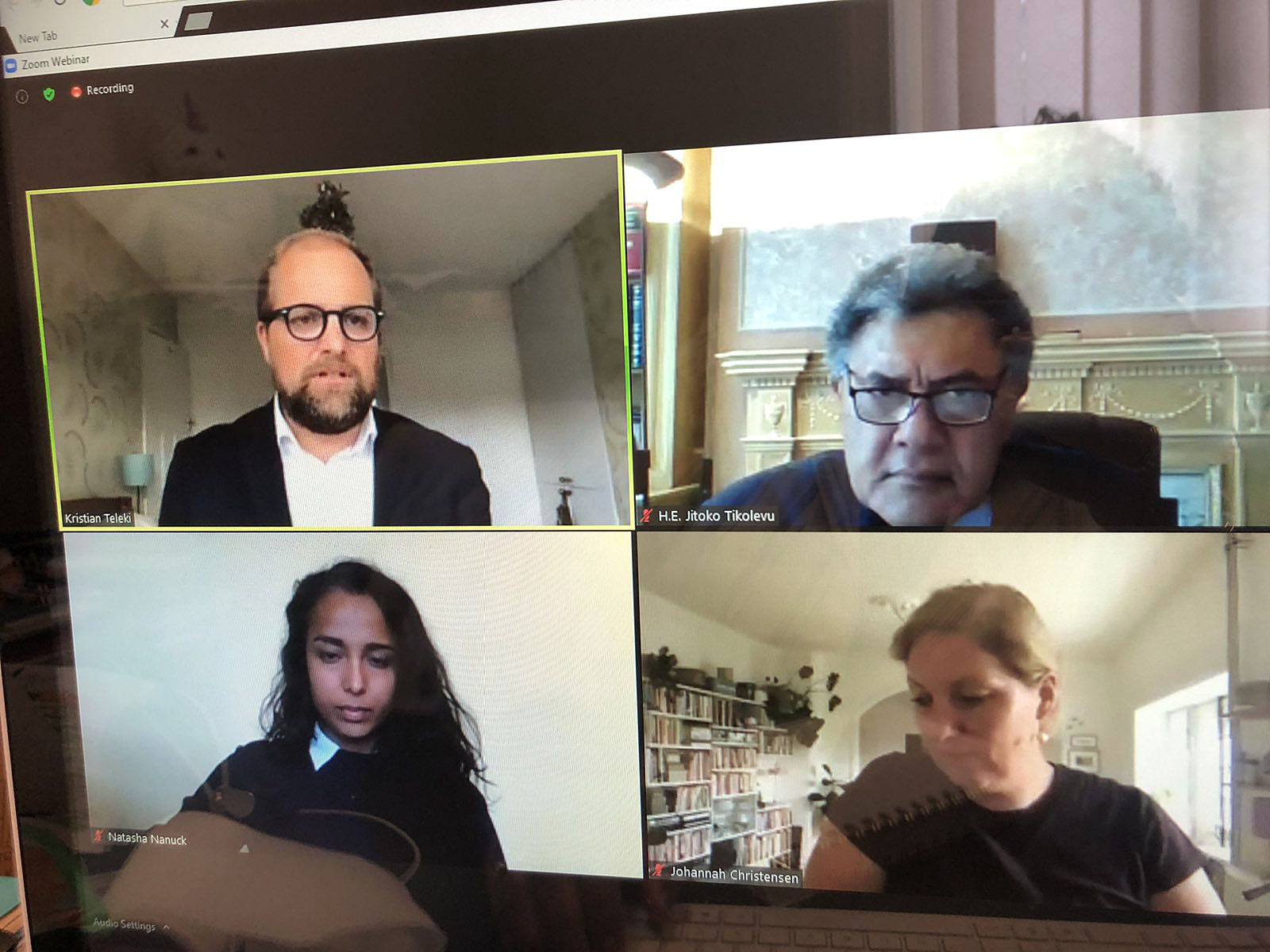Sustainable Ocean Economy is the bedrock foundation to unleash innovative potential to drive actions on Climate Change and enable a gradual recovery from the COVID-19 crisis.
This was a key message conveyed in the “London Climate Action Week” virtual forum organised today by the World Resource Institute.
The Fiji High Commission in London participated in this global forum and captilised on the opportunity to discuss ocean based climate actions that might lead to attaining environmental, social, health and financial benefits amidst the uncertainty of COVID-19. The virtual event was a bridge to COP25 as the Blue COP and the build-up to COP26 in 2021.
Discussions were moderated by renowned ocean experts Ambassador Peter Thomson, United Nations Secretary-General’s Special Envoy for the Ocean and Ove Hoegh-Guldberg, Professor, University of Queensland.
Fiji spoke from a standpoint as the Pacific Small Island Developing States and as the co-chair of the Pacific Blue Shipping Partnership with the Republic of the Marshall Islands. Consisting of eight (8) Pacific governments, the Partnership has proposed some of the most ambitious national targets on marine transport.
In his address to the forum, Fiji’s High Commissioner to the United Kingdom, Mr. Jitoko Tikolevu emphasised that the Pacific is a collection of very small countries in far-flung islands on the world’s greatest Ocean and that shipping was an absolute lifeline.
“Domestically it is a cross-cutting issue that impacts all aspects of life, economy and wellbeing. Generally aged, often not the best maintained or appropriate. This is not primarily a technological issue, rather a financing issue. Shipping in the Pacific is high-risk and a financially marginal business,” Ambassador Tikolevu said.
“The region views climate finance as the opportunity to underpin a Pacific transition to low carbon vessels. Given our extreme dependency on imported fuels and the sad state of much of our current shipping fleets, we simply cannot afford to be left behind as the rest of the world moves away from carbon.”
High Commissioner Tikolevu said a safe, zero emission marine transport was not just a climate issue for the Pacific – but a food security, mobility, livelihood and resilience issue.
“The region is increasingly dependent on our imports.
For some of the smaller states, they are more than 80% dependent on ships arriving with imported food, and most other goods, simply to survive.
Our ability to sustain our own economies through internal trading is also entirely dependent on shipping. In times of disaster, be that health, cyclone or others, this reliance on our own shipping becomes even more acute.
We expect the climate crisis to only increase this demand for better domestic shipping services.”
In positioning its commitment to a more decarbonized domestic marine transport post COVID recovery efforts, High Commissioner Tikolevu said that Fiji will continue to press for the highest possible ambition on climate change.
“For shipping, that means seeking to greatly increase the level of ambition in the revised IMO Strategy and tackling head on the difficult debate over the need for a shipping Carbon tax.
“Fiji will continue to try and match our international calls with domestic action. Fiji, along with the Marshall Islands, has committed to ambitious domestic targets for maritime – 40% by 2030 and 100% by 2050. Fiji has included strong policy for domestic shipping in our Low Emissions Development Strategy.
“Pacific Blue Shipping Partnership is also the vehicle designed to operationalise this transition in Fiji and our neighbouring Pacific states. In advancing our interest in the implementation of the Pacific Blue Shipping Partnership, our 10-year plan essentially sets the course to make a serious investment.
“We estimate around $500million, to catalyze a shift to low or zero carbon shipping in a group of Pacific countries.”
“There is an obvious need for new types of fuels to get us to 100 percent,” High Commissioner Tikolevu added.
The Forum also featured discussions that emphasised that healthy oceans are important for healthy planet and that carbon neutrality by 2050 is dependent on Blue and Green recovery, the need to incorporate Blue Carbon into the Nationally Determined Contribution (NDC) and the significance of investing in Renewable Energy.
The virtual forum was attended by a total of 212 senior officials from the 14 member countries of the Ocean Panel.




